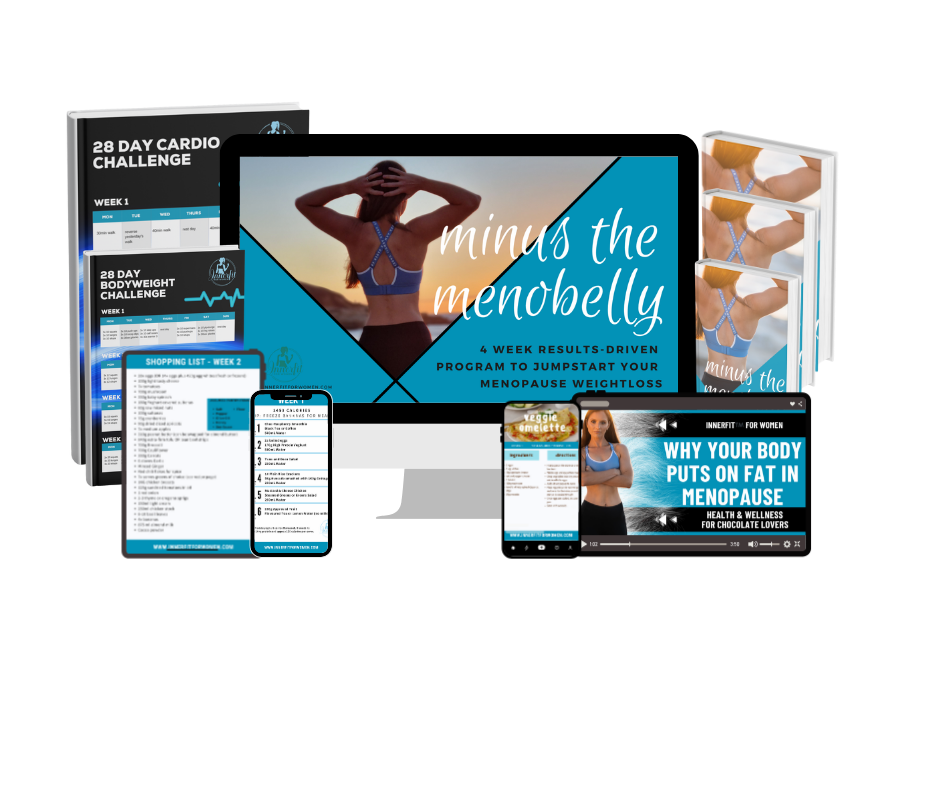How Do Hormones Really Affect Fat Loss in Perimenopause or Menopause?
- Innerfit For Women

- Nov 13, 2025
- 3 min read
If you’ve ever felt like your body suddenly stopped responding to things that used to work, you’re not imagining it. Your hormones are just shifting, and your body is adapting to a new normal.
Here’s what’s really happening, and how you can work with your hormones instead of fighting against them.
1. Estrogen Declines and Fat Storage Changes
Estrogen plays a big role in how your body stores and burns fat. When levels start to drop during perimenopause and menopause, your body begins to redistribute fat, often from your hips and thighs toward your belly.
That’s why many women notice new belly fat appearing even when their weight doesn’t change much. The fix isn’t starvation. I
t’s learning how to balance food, strength training, and recovery so your metabolism stays active.
2. Progesterone Drops Too, and That Impacts Sleep
When progesterone levels fall, your sleep can take a hit. You might find yourself waking up at 3am for no reason, tossing and turning, or feeling wired at night but exhausted during the day.
Poor sleep messes with hunger and fullness hormones (ghrelin and leptin), which makes cravings stronger and willpower weaker. Working on consistent sleep routines and stress management is just as important as what’s on your plate.
3. Cortisol Can Spike and That Slows Fat Loss
Cortisol is your stress hormone. When it stays high for too long, it encourages your body to hold onto fat — especially around the midsection.
This doesn’t mean stress alone makes you gain fat, but constant stress can make fat loss feel harder.
Daily movement, deep breathing, good food, and rest all help bring cortisol down so your body can function properly again.
4. Insulin Sensitivity Changes and Carbs Become Tricky
As estrogen drops, your body can become a little more insulin-resistant, meaning it doesn’t handle carbs as efficiently as it used to. That doesn’t mean you need to cut them out completely. It just means quality and timing matter more now.
Think whole grains, fruit, vegetables, and protein with every meal to slow digestion and keep blood sugar stable.
5. Muscle Loss Speeds Up and So Does Metabolic Slowdown
Without enough resistance training and protein, women can lose muscle faster through perimenopause and menopause. Less muscle means a slower metabolism and fewer calories burned at rest.
The solution? Lift weights.
Move daily. Eat protein at every meal. It’s not about building bulk. It’s about protecting your metabolism, your strength, and your confidence.
6. Your Body’s “Set Point” Adjusts — and You Need a New Strategy
Your metabolism isn’t broken. It’s just working under a new set of rules.
Old diets that relied on restriction or excessive cardio stop working because your hormones no longer tolerate extremes.
Your best strategy now is consistency, not punishment.
Balanced meals, regular movement, enough sleep, and stress control are the foundation that help your body release fat without fighting it.
7. Your Hormones Are Not the Enemy
Perimenopause and menopause are not the end of your progress. They’re a chance to finally stop chasing quick fixes and start understanding what your body actually needs.
When you learn to support your hormones with food, movement, and self-care, your energy returns, your sleep improves, and fat loss becomes possible again — without obsession or burnout.
The Bottom Line
You can absolutely lose fat in perimenopause and menopause. You just have to stop using old tools for a new phase of life.
Body weight exercises. Real Food. Timed Carbs. Less Stress. These things will all help.
But please know, too, that while these things help, they are not always a cure or a fix. For some women HRT and supplements may be needed. This is a discussion for your doctor.
If you want to get started today on heading in the right direction, try our Minus the Menobelly 4 Week Blueprint. It really helps!




Comments